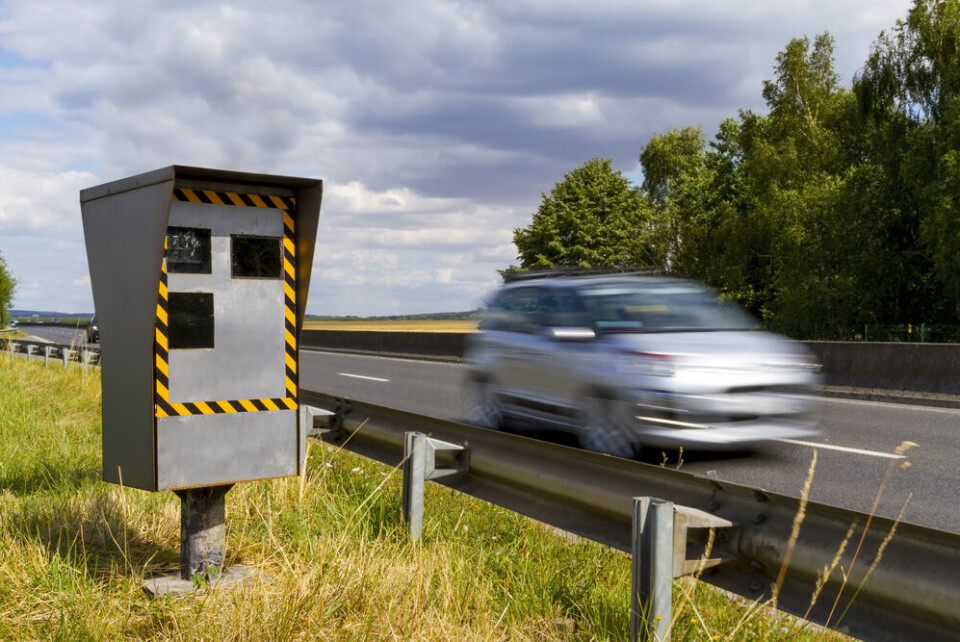-
Are there smartphone apps that show the location of parking spaces in France?
There are several digital methods to pay for a parking spot
-
Must address on UK driving licence be changed after moving to France?
UK drivers may have to exchange their licence for a French one after moving
-
Map: Car insurance costs rise in France - see the average in your region
Multiple studies show that costs are rising by around 5% year-on-year, with major differences by region and vehicle model
Are speed camera detectors in cars legal in France?
In car ‘radar warning systems’ can alert drivers of fixed speed cameras and some can use live information to warn of mobile devices also

Reader Question: I saw a ‘radar detector’ being sold in a shop. I thought this was illegal to install in my car?
The law in France makes distinctions between the various different tools that drivers can use to detect speed cameras.
Whilst most of these are illegal to use to find the precise location of speed cameras, there are some approved ones which are possible.
Essentially, it is illegal to use a tool to obtain the precise location of a fixed or mobile speed camera, although tools that show you areas where cameras might be present are legal.
Which tools are illegal?
The two main tools that are illegal in France are détecteurs de radar (radar detectors) and avertisseurs de radar (radar warning systems).
‘Radar detectors’ usually consist of a small box attached to the windscreen or dashboard, intended to physically sense the presence of electro-magnetic waves from speed cameras or hand-held speed guns.
According to insurance firm Generali, police officers have access to ‘radar detector detectors’ that pick up on the waves emitted by devices and they sometimes pull over drivers to check their cars if they believe they are carrying one.
Penalties can include loss of six licence points, a three-year licence suspension and a fine of up to €1,500 as well as confiscation of the device.
‘Radar warning systems’ use a database of known radar positions together with satnav to find your current position.
They can then warn you of fixed speed cameras, and some can use live information to warn of mobile devices as well.
These have also been banned since 2012, and are now uncommon, however they have been replaced by alternatives (see below).
Note that the use of brouilleurs antiradar (anti-radar jammers) – which prevent radar speed cameras from taking accurate measurements – is also against the law in France.
Read more:Radars to catch drivers wrongly using car share lane on rise in France
What is legal?
Assistants d’aide à la conduite (driving assistance systems) have largely replaced the warning systems and are legal.
These driving aids are legal because they do not explicitly state the precise location of speed cameras, but merely indicate that certain areas could be ‘dangerous’ (zone de danger), and that slowing down is advised. This may, for example, include some places where speed cameras are located, but could also be linked to roadworks or congestion etc.
These are permitted because they encourage careful driving in a general area, and not sudden slowing down due to the presence of a speed camera.
Driving aids can come both in the form of smartphone applications (such as Waze), or as a box you can install in your car.
If the labelling on the box of a device is unclear as to its nature, checking that it carries the ‘NF’ label will ensure it is legal to use.
These driving aids are often updated through community interaction, with drivers giving feedback on the ‘danger zones’. Some such services are subscription based.
In 2016, France’s top appeal court ruled it is not illegal for drivers to share this information with each other, after the government attempted to pass a law preventing it.
Further legal changes are always possible, but there are not any currently expected.
Related articles
Warning to drivers over scam parking fine tickets in France
This road sign is popping up more and more in France
























